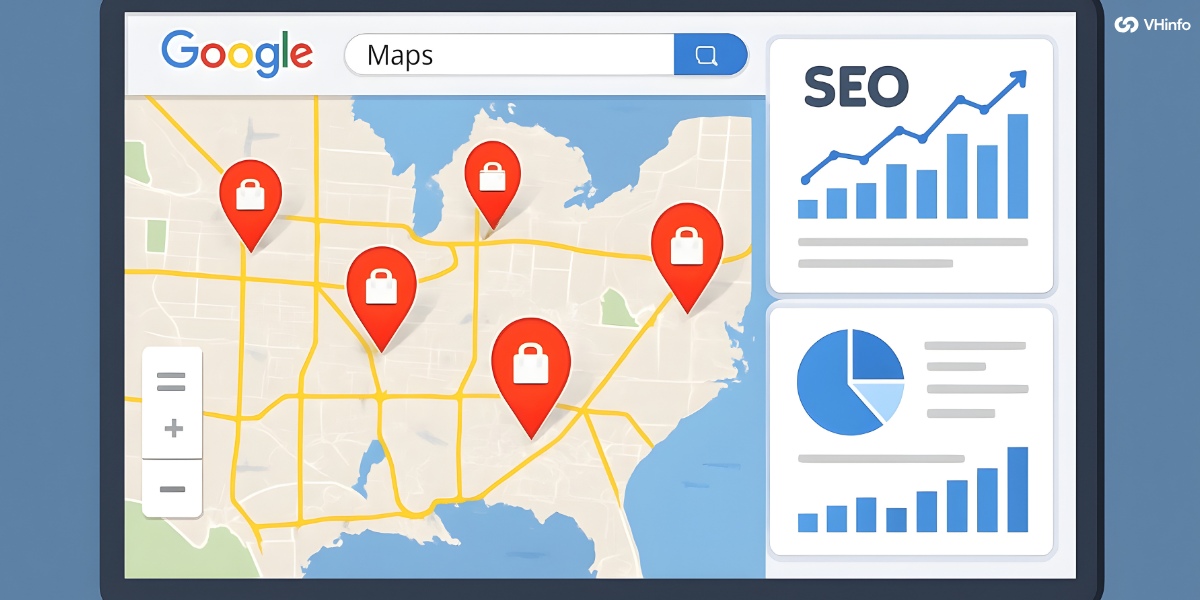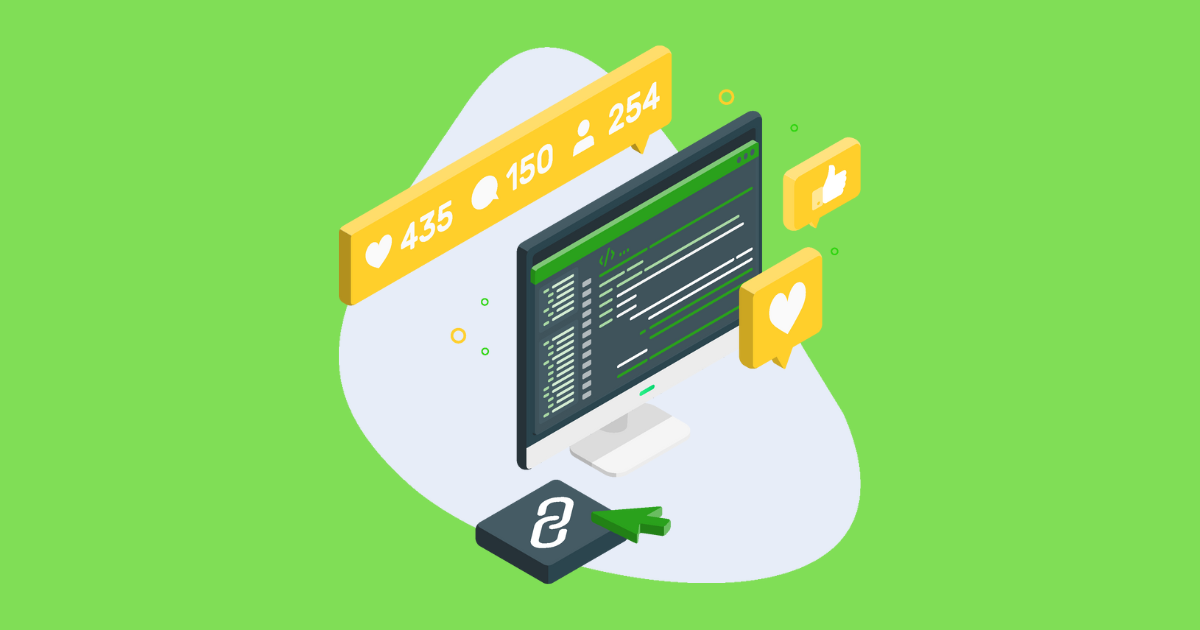Starting a blog lets you share your ideas and stories with others. Some people want to write, but not use their real name. The good thing is that this can be done. This easy guide will help you learn how to make an anonymous blog. We will show you each step in the process.
You will see what it means to hide your name as a blogger. We will also cover simple steps to set up your blog. You will read about the good points and hard parts of blogging without your name. There are tips on making money while keeping your name hidden, too.
If you want to talk about touchy topics, keep your work safe, or just write for fun in private, you can start an anonymous blog with no problem.
At VH-info, our goal is to make technology simple for everyone. We provide clear, easy-to-understand guides on many topics to help you navigate the digital world with confidence. Explore more helpful articles and resources on our website to continue learning.
Can You Blog Anonymously?

Yes, you can make and run a blog without using your real name. Many people do this and find good results.
When you write an anonymous blog, you share posts online but hide who you really are. You might use a fake name or not use a name at all. It is very important to keep safe steps in mind. You should hide your real name and where you live.
This makes sure nobody can know who you are outside the blog. You should think ahead before you begin.
Planning helps a lot and is good for you. It lets you write about things that matter to you. You do not need to worry about people learning your name. Your job will not get tangled up with your blog writing either. This way, both sides of your life stay apart.
Understanding Anonymity Before You Start
Before you write your first blog post, it’s important to think about what being anonymous means for you. Making a few key decisions in the first place will help you stay safe and achieve your goals.
Defining Your Reasons For Blogging Anonymously
People choose anonymous blogging for many reasons. Maybe you want to write about a personal struggle with mental health and don’t want your family or employer to know. Perhaps you work in a field where your opinions on personal finance could get you in trouble.
Or maybe you want to expose wrongdoing and need to protect yourself.
Understanding your “why” is the first thing to consider because it will determine the level of anonymity you need. If you are just testing the waters with a new blog, your needs will be different from someone discussing very sensitive topics.
Legal and Ethical Considerations to Keep in Mind
Being anonymous does not mean you can do anything you want. It is still important to be ethical.
Anonymous blogging is legal, but you cannot use it to harm others, spread lies, or break laws. The freedom of an anonymous blog comes with responsibility. You should still aim to be truthful and respectful in your writing. Protecting your real identity is important, but it’s also important to use your anonymous platform for good. Never share someone else’s personal information without their consent.
Anonymity Vs. Pseudonymity: Which Is Right For You?
You have two main options: being anonymous or being pseudonymous.
- Anonymity means there is no name attached to your work at all. Your blog posts are published without any author. This offers a high level of privacy but makes it hard to build a brand or connect with real people.
- Pseudonymity means you use a pen name or a fake name. Think of authors like George Orwell, whose real name was Eric Blair. This is a great thing if you want to build a brand around your blog name and connect with readers, all while keeping your real name and personal life private. For most anonymous bloggers, using a pen name is the best choice because it lets you build a reputation without revealing your real identity.
How to Start an Anonymous Blog: A Technical Walkthrough
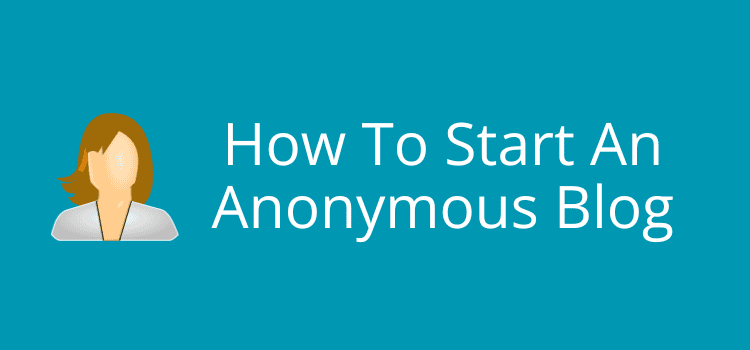
Setting up an anonymous blog requires a few technical steps to protect your identity. If you follow these carefully, you can significantly reduce your digital footprint and keep your personal details safe.
Choosing A Secure and Private Blogging Platform
The blogging platform you choose is your foundation. Some platforms are better for privacy than others.
- Self-Hosted WordPress Blog: This is often the best choice for anonymity. When you use a self-hosted WordPress blog, you have full control. You buy your own web hosting and install the WordPress content management system. This gives you more freedom to add security measures.
- Blogger or Tumblr: These are free and easy to use, but they are owned by large companies that track user data. It can be harder to stay truly anonymous on these platforms.
- Privacy-Focused Platforms: Some platforms, like Write.as, are built specifically for anonymous blogging. They often have fewer features but offer a higher level of anonymity right from the start.
The Importance of Using A VPN and the Tor Browser
Your internet link can show where you are by showing your IP address.
To keep your IP address hidden, always use a VPN when you work on your blog. A VPN hides your online connection and sends it through another server. This makes it look like you are in a different place. If you want even more safety, try the Tor Browser.
Tor sends your link through many layers of safety. This makes it very hard for anyone to track what you do online or find out who you are.
Anonymous Domain Registration and Hosting Options
When you start your own blog, you need a name for your site and a place to host it.
Most times, you have to give your personal details when you buy a domain name. To stop this, pick companies that offer privacy for domain names. This privacy service swaps your details with the company’s information in online records. Some call it WhoisGuard.
A good hosting company will care about keeping your data safe and private, too. Some of these companies let you join without using your real name. Always try to find privacy features when picking who will host and sell your domain.
Paying For Services With Cryptocurrency
When you use a credit card to buy your domain name or web hosting, it shows who you are.
This is because your payment can be traced back to you. If you want to keep your name private, use something else to pay. You can pay with digital coins like Bitcoin or Monero instead of a credit card. Now, many sites and web hosts let you pay with these coins.
This way helps keep your blog fully apart from your real money details. Paying with these coins makes it much harder for others to find out who owns the blog. This extra step gives more safety and privacy for you as a blogger.
Benefits of Blogging Anonymously
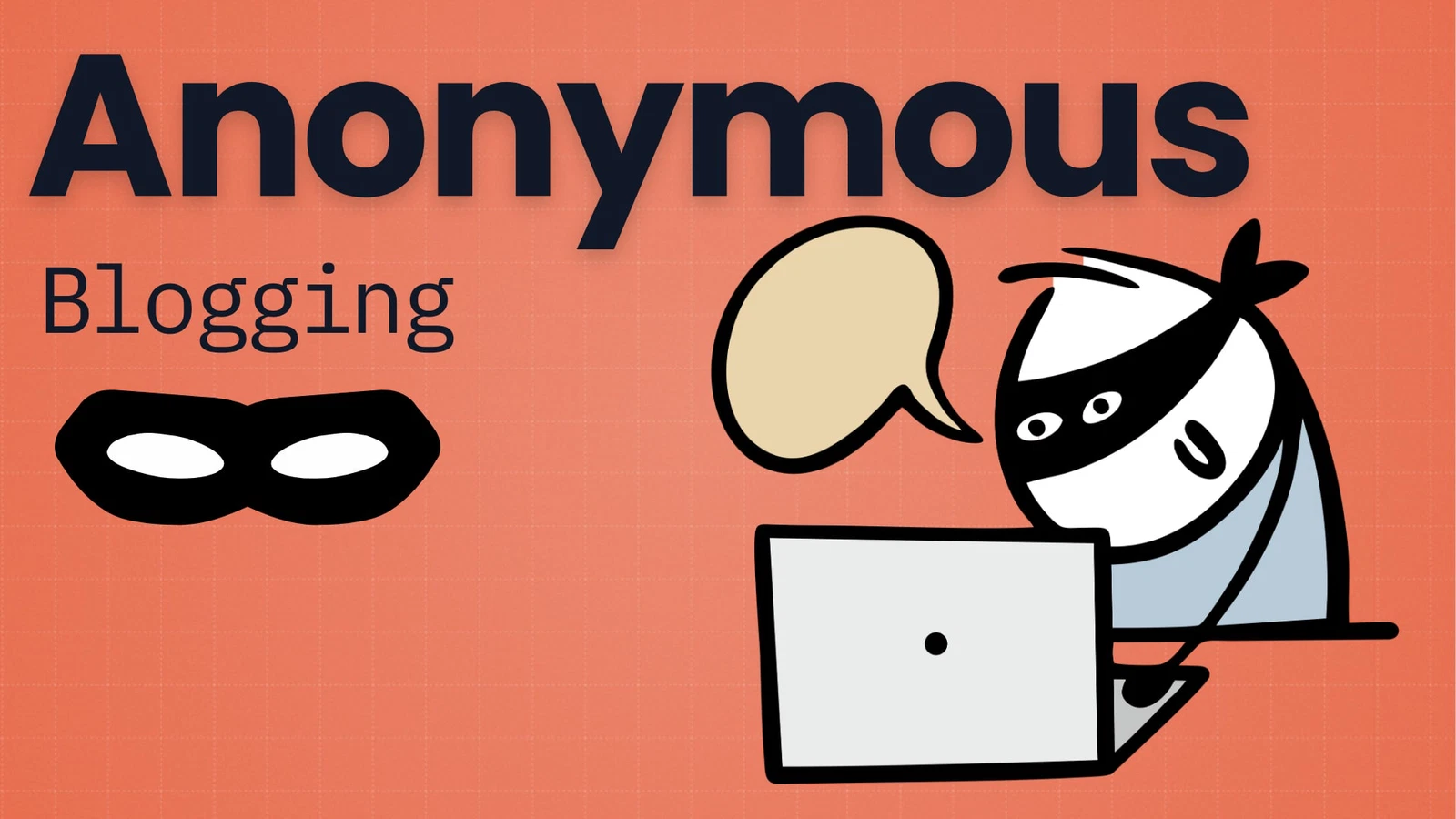
Choosing to blog without using your real name comes with several powerful advantages. It can give you a sense of freedom and security that you wouldn’t have otherwise.
- Freely Express Your Opinions: When your name isn’t attached to your words, you can speak more openly. This is especially true if you have opinions that might be unpopular or could affect your job or relationships. An anonymous blog gives you a safe space to share your true thoughts.
- Protect Other People’s Identities: Sometimes, you might need to write about situations that involve other real people. Blogging anonymously helps you tell these stories without revealing the identities of friends, family, or coworkers, protecting their privacy as well as your own.
- Keep Your Blogging and Personal Life Separate: You can build a successful blogging business without it interfering with your personal life or professional life. Anonymity creates a clear wall between your online persona and your day-to-day activities, which can improve your mental health.
- You Enjoy Writing Privately: Some people are simply private. You might love to write and share ideas, but feel uncomfortable with being in the spotlight. Anonymous blogging is the perfect solution. You get to do what you love without any unwanted attention.
- It’s In Your Contract: If you have a job, your employment contract might prevent you from publishing content online, especially if it relates to your industry. An anonymous blog allows you to write and share your expertise without violating your work agreement.
- You’re Just Testing The Waters: Starting a new blog can feel like a big commitment. Blogging anonymously is a great way to try it out without any pressure. You can see if you enjoy it and if you can build an audience before deciding to attach your real name to it.
- Your Real Name Isn’t Brandable: Your first name and last name might be common, hard to spell, or just not very catchy. Creating a unique blog name and pen name can be a better branding strategy, helping you stand out and be more memorable to your readers.
- You’re Trying to Expose Something: Anonymous blogs have a long history of being used for activism and whistleblowing. If you need to expose corruption or share important information about a sensitive topic, anonymity is essential for your safety and protection.
Disadvantages of Blogging Anonymously

While there are many benefits, there are also some challenges to consider before you start an anonymous blog. Being aware of these can help you prepare for them.
- You Can’t Rely On Your Own Social Media Reach: When you blog anonymously, you can’t just share your new blog post on your personal social media accounts. You will have to build a following from scratch on new, anonymous social media profiles, which can be a slow process.
- You Miss Out On Being Seen As An Authority: It can be harder to build trust and authority without a real name and face. Readers may be more skeptical of a blog run by a pen name. You’ll need to work extra hard to prove your expertise through high-quality content.
- Engagement Will Be Lower At First: Building a community around an anonymous blog can take more time. Real people are often more likely to comment and engage when they feel like they know the person behind the content. You will need to be patient and consistent.
- Password Management Becomes A Hassle: To maintain your anonymity, you will need a separate, new email account for your blog, different passwords for every service, and you’ll need to keep track of it all securely. Good password management is critical.
- It’s Hard To Be Truly “Anonymous”: Staying 100% anonymous online is very difficult. A single mistake, like accidentally using your real first name in a comment or forgetting to turn on your virtual private network, could reveal your real identity. You must be careful all the time.
How to Run A Blog Anonymously and Still Make Money?

Yes, you can absolutely blog anonymously and make money.
Many of the most successful anonymous blogs generate significant passive income. The key is to build trust with your audience through great content and choose monetization methods that don’t require you to reveal your personal information.
Where Can I Blog Anonymously?
A self-hosted WordPress blog is one of the best sites for an anonymous blog. It gives you the most control over your privacy. Other platforms like Write.as or Ghost are also good. These sites focus on keeping your information safe.
When you start, pick a blog site that protects your need to stay hidden. Look for features like domain privacy that help keep your details private. This choice will help you stay safe while blogging without sharing your real name.
How to Promote Your Blog If It Is Anonymous?
Promoting an anonymous blog requires a different strategy. You can’t rely on your existing network.
Instead, you will focus on content-driven methods. This includes search engine optimization (SEO) to help people find you on search engines, building an anonymous social media presence, and guest posting on other blogs in your niche under your pen name.
How to Choose A Pen Name For Your Blog?
Your pen name is your brand. Choose a fake name that is memorable, easy to spell, and relevant to your blog’s topic.
For example, if you have a personal finance blog, a name like “The Frugal Phantom” could work well. Avoid using any part of your real name or any personal details. A good pen name helps you build a connection with readers without compromising your anonymity.
How to Promote an Anonymous Blog?

Getting readers for your anonymous blog requires smart promotion.
Here are some effective methods that don’t require you to reveal your identity.
- Promoting Your Blog On Social Media: Create new social media accounts using your pen name. Set up profiles on platforms where your target audience hangs out, like Twitter, Pinterest, or Reddit. Use these accounts only for your blog and never access them without your VPN. Share your blog post content and engage with others in your niche to build a following.
- Guest Blogging: Guest blogging is when you write a blog post for another website in your industry. This is a powerful way to get your pen name and blog name in front of a new audience. When you guest post, you get a link back to your blog, which drives traffic and builds your site’s authority. Reaching out to other blogs with a professional anonymous email is the first step.
- Email Marketing: Building an email list is one of the best ways to connect with your readers directly. Use an email marketing service to create a signup form for your blog. You can send your subscribers updates about new posts and build a loyal community. Be sure to use a new email account that is not tied to your real name to manage your list.
- Paid Ads: You can use paid advertising, like Google AdSense or social media ads, to promote your blog. When setting up these campaigns, you can do so without using your personal details, especially if you use privacy-focused payment methods. Paid ads can be a great way to quickly get traffic to your best content.
How to Make Money With an Anonymous Blog?
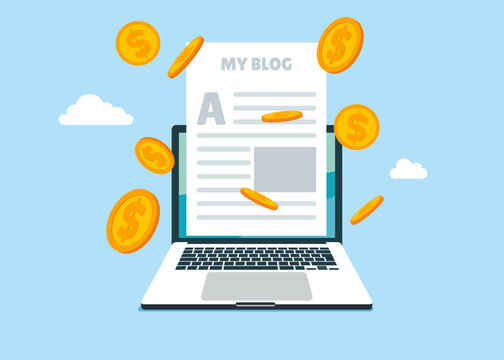
You can turn your anonymous blog into a source of passive income.
Here are some of the most popular ways anonymous bloggers make money.
- Affiliate Marketing: This is one of the easiest ways to start. With affiliate marketing, you recommend products or services you trust. When a reader clicks on one of your special affiliate links and makes a purchase, you earn a commission. It doesn’t require you to handle any products yourself.
- Ad Placements: You can place display ads on your blog. Services like Google AdSense will pay you to show ads to your visitors. The amount you earn depends on how many people see or click on the ads. While it’s an easy way to earn, some ad networks may have identity verification requirements, so research them carefully.
- Sell Your Own Products: If you have expertise in a certain area, you can create and sell your own digital products. This could be an e-book, a template, or a guide. Selling digital products is a great way to make money because you create it once and can sell it over and over.
- Build an Online Course: For a more in-depth topic, you can build and sell online courses. People are willing to pay for well-structured information that helps them solve a problem. You can host your online courses on your own site or on a platform that respects your privacy. This can lead to financial freedom.
- Ask For Donations: If you are providing valuable content, especially on sensitive topics, some readers will be happy to support your work directly. You can add a “Buy me a coffee” button or a cryptocurrency wallet address to your site to accept donations.
FAQ’s:
Is Anonymous Blogging Legal in the United States?
Yes, anonymous blogging is legal in the United States. It is protected under the First Amendment, which guarantees freedom of speech. However, this freedom has limits. You cannot use your blog to defame someone, harass others, or engage in illegal activities.
As long as you are using your blog responsibly, you are well within your legal rights.
How Do I Keep My Identity Completely Hidden?
Keeping your identity completely hidden requires constant care. The first thing to do is use a VPN and the Tor Browser every time you work on your blog. Use a private email address created just for your blog. Register your domain name with domain privacy protection.
Pay for services with cryptocurrency. Never use your real name, photos of yourself, or any other personal details in your content.
What Are The Best Platforms For Anonymous Blogging?
The best platform depends on your technical comfort and your need for anonymity. For maximum control and privacy, a self-hosted WordPress blog is the top choice. You control the hosting, the domain, and all the security settings.
For a simpler, ready-to-go option, platforms like Write.as or Ghost are specifically designed for privacy-focused and anonymous writers.
Conclusion
Starting an anonymous blog is a powerful way to share your voice while protecting your identity.
Selecting the right blogging platform, utilizing resources such as a virtual private network, and developing a distinctive pseudonym allow you to establish a successful blog according to your preferences. Anonymous blogging presents a unique opportunity, whether your aim is to address delicate subjects, keep your professional and personal identities apart, or pursue financial independence via your writing.
It requires diligence to protect your level of anonymity, but the freedom and security it provides are well worth the effort. You can create valuable content, build a loyal audience, and even run a profitable blogging business, all from behind the comfort of a pen name.
For simpler guides on digital tools and staying safe online, VH-info is here to help. We break down complex topics into easy steps so you can continue to learn and create with confidence.

